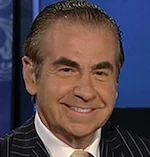 |
| Fraser Seitel |
What’s America’s biggest problem? Inequality? Inflation? Immigration? Crime? Trump? Marjorie Taylor Greene? Odell Beckham, Jr.? Stephen A. Smith? No. The answer is guns.
Specifically: Military-caliber assault weapons designed for war, like semi-automatic AR-15s and fully automatic AR-57s, which have been the weapon of choice for mass murderers, especially in the 377 U.S. school shootings since the Columbine massacre in 1999. The majority of Americans agree there’s no earthly reason why such weapons should be available for purchase by ordinary citizens. That’s why most other civilized nations outlaw them.
The United States, too, once had a federal Assault Weapons ban, but that law expired in 2004, paving the way for the 350 deaths and 450 injuries caused by these weapons in subsequent years. Today, nine states have banned assault weapons. All of these states have two Democrat senators. Indeed, the only reason the federal ban on military-style weapons is no longer law is that Republican senators are scared of the National Rifle Association and what the right-wing kooks who dominate the party might do to them if they support its reintroduction.
Meanwhile, the U.S. House of Representatives has suffered no such reluctance to do what American voters overwhelmingly favor. Last August, the House voted to approve a new ban on assault weapons. But Senate Republicans remain fearful of challenging the Revolutionary War-era Second Amendment and, therefore, remain too cowardly to do the right thing.
No wonder, according to the latest Gallup poll, only a measly seven percent of Americans have “a lot of confidence” in the U.S. Congress.
At the same time, Gallup also reports that Americans rank the national news media nearly as lowly as they do Congress. More than half of Americans believe most national news organizations, as my colleague Jon Gingerich wrote recently, “deliberately mislead, misinform or work to persuade the public.”
In other words, most people are convinced that the media are as partisan, clueless and gutless as politicians. And it’s not just purposely-biased networks like MSNBC and Fox who have lost respect; it’s everybody from CNN to PBS to NPR to The New York Times.
This is bad news not only for reporters and editors and bloggers but for public relations professionals who work through the media to persuade people to support their positions, endorse their candidates or buy their products.
So, how can the media begin to win back public trust? Here’s an idea: Go after vulnerable Republican senators on an issue on which most Americans agree: banning assault weapons. By “go after,” I mean applying unremitting pressure on the following five Republican senatorial fence-sitters from states whose voters may be more sympathetic to common sense gun laws.
Marco Rubio
The senior Senator from Florida has studiously strengthened his stature over more than a decade in the Senate. Rubio’s long-term goal is to become President, and there’s no question that when Republicans once again gain the White House, Rubio will be among the first elevated to Cabinet status.
On gun control, Sen. Rubio has been characteristically opaque, hemming and hawing his way around the issue to avoid controversy. Most disturbing, he refused to take a stand on assault weapons in 2018, when a 19-year-old nutcase murdered 17 people and injured 17 others at Parkland’s Marjory Stoneman Douglas High School in his home state.
“If someone’s decided, ‘I’m going to commit this crime, they’ll find a way to get the gun to do it,’” the Senator pathetically replied to questions at the time. Parkland parents were understandably appalled at their Senator’s sniveling comments. And ever since, Rubio has deftly ducked in the wake of subsequent school shootings.
But today, with Floridians not nearly as gun-lovingly right-wing as neighboring states like South Carolina and Alabama and with Rubio nursing higher office ambitions, a concerted media effort to dislodge him from his assault weapons waffling seems well worth the effort.
Rick Scott
Rubio’s junior senatorial partner, former Florida Gov. Rick Scott, is another viable candidate to find religion on gun control.
Unlike his Florida colleague, Sen. Scott isn’t particularly likable. In fact, Scott himself unabashedly admits, “I’m seeking to become the least popular man in Washington.” He’s succeeding.
Scott’s tenure as chairman of the 2022 National Republican Senatorial Committee, in which he backed a series of dreadful losers, was disastrous. He followed that up with a futile challenge to replace Mitch McConnell—who hates him—as Senate Minority Leader. And he was then fingered by President Biden as the author of a secret Republican plan threatening everyone’s beloved Medicare and Social Security.
Scott is up for reelection in 2024, and he’s not trending well. But he’s counting on his “independence”—his vocal criticism of not only Democrats but his own party’s leaders—to win the day with Florida’s largely libertarian voters. As Scott is fond of saying, “We can’t put up with this B.S. anymore.”
One way to impress the voters with that independence—even for the NRA-favoring Scott—is to break ranks yet again in favor of the assault weapons ban. Five years ago, just three weeks after the Parkland massacre, then-Gov. Scott defied the gun lobby to sign into law a sweeping set of gun regulations. Said the Governor at the time, “I am going to do what I think are common-sense solutions. There is now going to be a real conversation about how we make our schools safe.”
The media should lean on the Senator to restore that precedent in today’s climate of rampant mass shootings.
Shelley Moore Capito
The relatively-silent Republican Senator from West Virginia seems content to let her on-again/off-again Democrat colleague Joe Manchin lap up most of the publicity.
Capito is mostly known for being the daughter of beloved former West Virginia Gov. Arch Moore, who served more than a decade in the state’s highest office as well as three years in federal prison on corruption charges.
Sen. Capito generally keeps her head down but did support last year’s bipartisan Safer Communities Act in the Senate, which dealt with school safety, mental health and background checks.
West Virginia ranks fifth among states in terms of gun ownership, and its state laws are weak in terms of red flag warnings, campus carry and gun safety in general. Nonetheless, West Virginians are inarguably more rational about the lunacy of possessing assault weapons than their brethren in gun-worshipping states like Montana, Wyoming and Texas.
So, turning the media spotlight on a shrinking mountain violet like Capito makes sense.
Todd Young
Another Republican Senator nobody-ever-heard of is Todd Young of Indiana. The reason you haven’t heard much about Young is there’s nothing much there. The best thing you can say about him is that at least he’s not as hopeless as his Republican colleague, Sen. Mike Braun.
Unlike gun lobby lemming Braun, Young was surprisingly willing to risk his $3 million NRA donation by voting “with Capito and 14 other Republican senators in favor of last year’s Senate gun control bill. Moreover, Young champions bipartisanship and says his successful reelection campaign last year “showed the value of non-partisan achievement and principled conservatism.”
In a Republican-leaning Midwest state where commentary from editorial writers and politicians has been building for stricter gun laws, media pressure on Sen. Young to take the next step to distinguish himself from the risk-averse Braun might be just what he needs to renounce assault weapons on the national stage.
Mitt Romney
Finally, there’s the well-known former Presidential candidate from the gun-loving state of Utah.
In recent years, the 76-year-old Romney has become the elder statesman “voice of reason” in a Trump-dominated party that seems to be headed, inexorably, over a cliff—despite being on the right side of many issues. November’s Senate elections—where Republicans served up disastrous candidates, even more disastrous abortion views and Trump—were but the latest examples of the Grand Old Party snatching defeat from the jaws of victory.
Republican unyielding support of assault weapons will no doubt prove the next—final?—nail in the coffin. Unless someone like Romney steps in.
In Utah, the Romney name is bulletproof, which has allowed the Senator to speak out on principle while fellow Republicans cower in fear of angering Trump and his band of followers. Sen. Romney has relentlessly led the charge to challenge the embittered former President and the pall he has left on the party. Romney’s courage has helped embolden other Republicans, from Mike Pence to Bill Barr to Chris Christie, to join him in rejecting Trump’s claims on the party.
Were Sen. Romney, similarly, to do “the right thing” by renouncing assault weapons, he might just be able to help rescue Republicans from another catastrophic electoral defeat in 2024.
***
Fraser P. Seitel has been a communications consultant, author and teacher for 40 years. He's the author of the Pearson text “The Practice of Public Relations,” now in its 14th edition, and co-author of “Rethinking Reputation" and "Idea Wise.” He may be reached directly at [email protected].


 LSU women’s basketball coach Kim Mulkey’s attacks on a Washington Post profile as a "hit piece," before it was even published, caught the attention of five million people—a far bigger number than the readers of the paywalled article.
LSU women’s basketball coach Kim Mulkey’s attacks on a Washington Post profile as a "hit piece," before it was even published, caught the attention of five million people—a far bigger number than the readers of the paywalled article.  The art of capturing the attention of the right journalist with the right pitch.
The art of capturing the attention of the right journalist with the right pitch.
 National Security Council Coordinator for Strategic Communications John Kirby isn’t the current White House Press Secretary, yet he’s the one the media turns to for answers on the Biden Administration’s policies.
National Security Council Coordinator for Strategic Communications John Kirby isn’t the current White House Press Secretary, yet he’s the one the media turns to for answers on the Biden Administration’s policies. With live press events making a comeback, here a few hints for making yours a success.
With live press events making a comeback, here a few hints for making yours a success.


 Have a comment? Send it to
Have a comment? Send it to 
No comments have been submitted for this story yet.